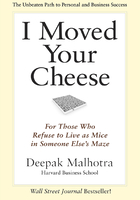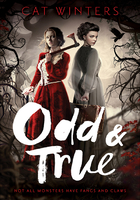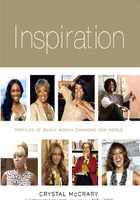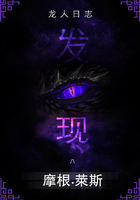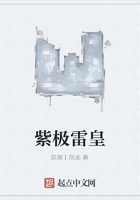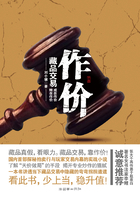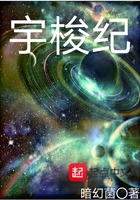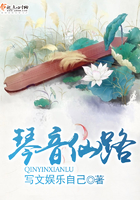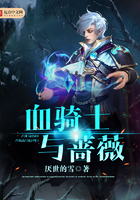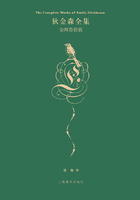WHAT DO YOU CARE ABOUT?
One of the great liabilities of history is that all too many people fail to remain awake through great periods of social change. Every society has its protectors of the status quo and its fraternities of the indifferent.… But today our very survival depends on our ability to stay awake, to adjust to new ideas, to remain vigilant and to face the challenge of change.
MARTIN LUTHER KING JR.
USER'S GUIDE
Perhaps for you the problem to work on is already clear: you see a pressing challenge that's not getting handled, for example, or a government or corporate policy you think is dumb or dangerous. Perhaps you've already joined an organization or group working on it. If that's the case, then you might skip to chapter 1. If it's not clear to you what problem has your name on it, however, then read on.
WHAT ARE THE public problems that test our times?
At the local level, “public problems” might include anything that makes your community less supportive and safe, such as failing schools, violence, poverty, home-lessness, transportation snarls, unwise development, or corrupt and ineffective government.
Many of these same problems exist at the regional and national levels, in addition to rising health-care costs, environmental pollution, and shredded social-welfare nets.
And while there are more than enough public problems and challenges at home, we're all citizens of a rapidly shrinking world, where the effects of globalization, terrorism, and regional conflicts make us all more aware of just how close—and dangerous—that world is. The rosy future promised by global free trade has yet to be realized by most of the world's have-nots, who know very well from television and the Internet how the other half lives. Warlords in failed states make violence an everyday event for much of the world's population. Half the planet is becoming a powder keg of frustrated expectations—and a recruiting ground for global terrorism.
Behind all these problems is a larger one. The end of the Cold War freed up resources and created unparalleled opportunities to advance the causes of peace and justice, both at home and abroad. Instead, in my view, we've produced a profound and selfish shal-lowness. Especially in the western world, we've become consumers more than citizens. What happened to the concept of the common good? Of looking beyond the welfare of ourselves and our families and paying serious attention to the welfare of others we may not know, and of the planet we all live on?
image The challenge now is to take responsibility, not just for solving the problems staring us in the face, but for doing so in ways that revive the common good—that bring people closer together instead of pushing them further apart. This book describes those ways.
WHAT PROBLEM DO YOU TAKE ON?
■ Problems in Your Face
Sometimes a problem confronts you in ways that are direct and personal. Giraffe Lois Gibbs, for example, became a crusader against toxic waste when she saw her own kids getting sick (see sidebar, page 4). Here's how some kids found their problem, right at their schoolhouse door.
image
The Discovery School, in Coupeville, Washington, is a public school for kids challenged by schoolwork, discipline, or both. Following the Giraffe curriculum then used by the school, the kids asked themselves what problem they cared about most. The choice was easy. Several students had almost been hit by cars that were speeding past the school grounds, ignoring the speed limit to get to the nearby ferry landing. The kids knew that these weren't the only close calls, and that if something wasn't done, somebody was going to get seriously hurt or killed. The lack of traffic safety around their school was the problem they wanted to tackle.
The students started off their project by videotaping speeding cars, clocking them with a stopwatch on a measured distance, and graphing the results. Then they interviewed workers in the area about close calls these people had seen. With that data in hand, they got a state trooper to confirm their findings with his radar gun. They got one of the county commissioners to visit their school to see the problem for himself, and then they made a formal presentation to all the commissioners. The result was a $12,000 traffic light, a crosswalk, and the admiration of everyone who witnessed what they'd accomplished.
■ Suggestions for Your Search
Maybe there isn't a problem right in front of you, but you're open to getting involved if one appears. Don't wait for somebody else to find it for you. Actively seek that challenge important to you and then take it on with everything you've got. Here are some suggestions for your search.
Look around. Look at all the things in your community and country and world that you think aren't going right. For example:
Are there people in your community who don't have enough food or who have no shelter?
Are you concerned about the impact of money on politics?
Is the air where you live fit to breathe and the water fit to drink?
Are there global problems that concern you: environmental or economic problems, for example, or human rights problems? In today's interconnected world, local actions, such as consumer boycotts, can have global impacts. It was consumer pressure, for example, that led Home Depot to stop making patio furniture out of wood from old-growth forests overseas.
Which of these problems do you care most about? Which do you always seem to be talking about with your friends? Which animate your voice and body language?
image Watch the local and national news every night, and read the newspaper. Ask your spouse and friends—and your kids, if you have any—what they think needs fixing. Then make a list of the problems that resonate most with you.
Take an inventory of your background and experiences, and of what you like to do and what you're good at. Those elements are not in your life as accidents. If you assume, as I do, that there is purpose to existence, then it's hard to avoid the conclusion that personal attributes, whether innate or acquired, are there in order to be used. So if you're really good at working with preschoolers, or giving speeches, or balancing budgets, consider these as indicators of where your path of service may lie.
image Make a résumé—or update the one you have—as if you were applying for a job as an active citizen. Then read it as if you were the “employer.” What job would you hire yourself to do?
Don't rely too much on your mind. The answers you seek will come at least as much from your heart as from your head.
image Take some quiet time and be open to signs, hunches, and intuitive leaps that might help you find your path.
It's Not All or Nothing
Sticking your neck out to help solve public problems—becoming an active citi-zen—doesn't necessarily mean bailing out of the for-profit world. There are great opportunities in that world, not just to produce needed products at fair prices, but also to provide decent livelihoods for workers, to contribute to communities, and to model what it takes to combine a civic consciousness with a successful bottom line.
It also doesn't necessarily mean upending your life. It may simply mean doing what you do in a different way. Once, after a speech I'd given in Florida, I was stopped in the hall by the publisher of a major newspaper, a man who'd reached the top of his profession in his mid-40s and saw no more peaks to reach. “How can I step down from all this?” he asked. I asked him why he wanted to step down at all. His state was dealing with unchecked growth, racial violence, and a deteriorating environment. What if he were to transform his mission from selling newspapers into helping solve those problems? With a mission of service, he could stay right where he was, stick his neck out, and use his own editorial pages to help create and promote solutions.
Finally, active citizenship is not about being a superhero. It's about starting from where you are, using your talents, personality, enthusiasm, and preferences. You don't have to save the world—maybe the problems that grab your attention are small. Maybe they have to do with some big, pressing social concern, and maybe they don't. Your cause doesn't have to be something intrinsically noble, like feeding the hungry or freeing the oppressed. Most problems are much more “ordinary” than that, but that doesn't mean they are any less worth solving, or that doing so would be any less satisfying.
I worked with Evelyn Schaeffer, a remarkable activist in rural Ohio whose problem was getting her phone company to provide toll-free calling within Ashtabula County. Schaeffer saw that having to make long-distance calls to people who were nearly neighbors not only ran up the bill, but it also stifled a sense of community. The crusade she led improved the quality of life for a lot of people in one little corner of Ohio. As she wrote recently, “What we did succeeded, and that mattered to me, to all the others who worked on the campaign, and to all those people who still stop me in the street and say, ‘You're the lady who got us decent phone service.’”
A GIRAFFE STORY
Lois Gibbs
As a young housewife and mother, Lois Gibbs learned that her Love Canal neighborhood, in Niagara Falls, New York, was built on a toxic-waste dump. Her children were sick, possibly fatally. She had to do something. Gibbs set out to talk to neighbors about what they could do. But she was so unsure of herself that she quit after knocking on one door. Reminding herself that people's lives were at stake, she went back out and knocked on door after door. People called her nuts, or “that hysterical housewife.”
“Experts” told her she didn't know what she was talking about, but she kept on, gradually persuading other people to question what was going on and not to trust the corporate polluters and government officials who said that nothing was wrong. Eventually, the effort she started got all 900 families in Love Canal relocated.
Gibbs also went to Congress, where she made sure that what had happened at Love Canal powered a drive to create the Superfund, a multibillion-dol-lar federal program that forces polluters to clean up their toxic messes.
Gibbs went on to found the Citizens' Clearinghouse for Hazardous Wastes, now called the Center for Health, Environment and Justice, which helps other toxin-plagued communities not only clean up the poisons, but also work for safe jobs, drinkable water, uncontaminated foods, recycling, and reduction and proper disposal of wastes. The center has an active membership of over 5,000 grassroots organizations and handles about 1,500 requests for assistance every year.
Lois Gibbs went from being a shy housewife, afraid to talk to her neighbors, to being a national leader on an issue of vital concern, all because keeping her family and other families safe from toxic wastes meant so much to her. She didn't find the meaning in her life from getting her picture in the papers—although she did become famous. She found her meaning in service, first to her kids, and then to the nation.
Web link: Center for Health, Environment and Justice (www.chej.org).
We face many public problems. Behind all of them is the larger challenge of reviving the com mon good.
Many people never look for a problem to work on—it finds them and won't let go.
Look at all the things in your community and country and world that you think aren't going right; maybe one of those problems has your name on it. Local actions, such as consumer boycotts, can have global impacts.
Asking what you care about can help you find a problem to work on. Taking an inventory of your background and experiences, and of what you like to do and what you're good at, will help, too; those elements are no accident. Spend part of your search in silence, and pay attention to signs, hunches, and intuition.
Sticking your neck out to help solve public problems—becoming an active citizen—doesn't require upending your life. It may simply mean doing what you do in a different way. You don't have to save the world; maybe the problems that grab your attention have to do with some big, pressing social concern, and maybe they don't.
WHAT'S NEXT?
Active citizenship is tough work, and sticking your neck out for what you believe in is, well, risky. Why do it? Why you? Chapter 1 suggests some answers.

